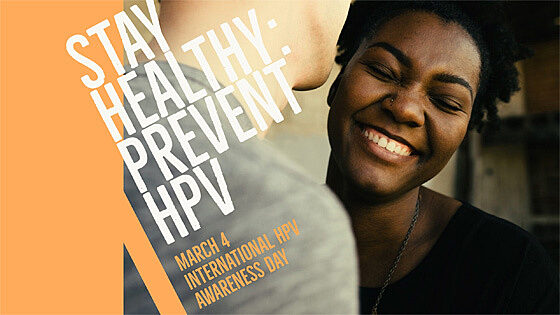Prevent and Protect Yourself from HPV
This year, the University of Florida Health Cancer Center is recognizing March 4, International HPV Awareness Day, by equipping you with the information you…

Update your location to show providers, locations, and services closest to you.
At the UF Health Women's Center, we provide comprehensive care for women with a variety of vulvar diseases including recurrent yeast infections and other vaginal infections, vulvar pain, precancer of the vulva and other benign conditions of the vulva. Our clinic and providers are dedicated to the care of women with benign conditions of the vulva. We work closely with our Department of Pathology to establish a correct diagnosis and then offer an array of treatment options including topical medical therapy, systemic medical therapy, physical therapy, and, when indicated, surgical therapy.
Genital warts are soft growths on the skin and mucous membranes of the genitals. They may be found on the penis, vulva, urethra, vagina, cervix, and around and in the anus.
Genital warts are spread through sexual contact.
Condylomata acuminata; Penile warts; Human papillomavirus (HPV); Venereal warts; Condyloma; HPV DNA test; Sexually transmitted disease (STD) - warts; Sexually transmitted infection (STI) - warts; LSIL-HPV; Low-grade dysplasia-HPV; HSIL-HPV; High-grade dysplasia HPV; HPV; Cervical cancer - genital warts
The virus that causes genital warts is called human papillomavirus (HPV). HPV infection is the most common sexually transmitted infection (STI). There are more than 180 types of HPV. Many cause no problems. Some cause warts on other parts of the body and not the genitals. Types 6 and 11 are most commonly linked to genital warts.
Certain other types of HPV can lead to precancerous changes in the cervix, or to cervical cancer. These are called high-risk types of HPV. They can also lead to vaginal or vulvar cancer, anal cancer, and throat or mouth cancer.
Important facts about HPV:
You are more likely to get genital warts and spread them more quickly if you:
If a child has genital warts, sexual abuse should be suspected as a possible cause.
Genital warts can be so tiny, you cannot see them.
The warts can look like:
In females, genital warts can be found:
In males, genital warts can be found on the:
Genital warts can also occur on the:
Other symptoms are rare, but can include:
The health care provider will perform a physical exam. In women, this includes a pelvic exam.
An office procedure called colposcopy is used to spot warts that cannot be seen with the naked eye. It uses a light and a low-power microscope to help your provider find and then take samples (biopsy) of abnormal areas in your cervix. Colposcopy is usually done in response to an abnormal Pap smear.
The virus that causes genital warts can cause abnormal results on a Pap smear. If you have these types of changes, you may need more frequent Pap smears or a colposcopy.
An HPV DNA test can tell if you have a high-risk type of HPV known to cause cervical cancer. This test may be done:
Make sure you are screened for cervical, vaginal, vulvar, or anal cancer if you have been diagnosed with genital warts.
Genital warts must be treated by a doctor. Do not use over-the-counter medicines meant for other kinds of warts.
Treatment may include:
The warts may also be removed with minor procedures, including:
If you have genital warts, all of your sexual partners should be examined by a provider and treated if warts are found. Even if you do not have symptoms, you should be treated. This is to prevent complications and avoid spreading the condition to others.
You will need to return to your provider after treatment to make sure all the warts are gone.
Routine Pap smears are recommended if you are a woman who has had genital warts, or if your partner had them. If you had warts on your cervix, you may need to have Pap smears every 3 to 6 months after the first treatment.
Women with precancerous changes caused by HPV infection may need further treatment.
Many sexually active young women become infected with HPV. In many cases, HPV goes away on its own.
Most men who become infected with HPV never develop any symptoms or problems from the infection. However, they can still pass it on to current and sometimes future sexual partners. Men are at increased risk for cancer of the penis, anus, and throat if they have a history of HPV infection.
Even after you have been treated for genital warts, you may still infect others.
Some types of HPV can cause cancer of the cervix and vulva. They are the main cause of cervical cancer.
Genital warts may become numerous and quite large. These will need further treatment.
Contact your provider if:
Women should begin having Pap smears at age 21.
HPV can be passed from person to person even when there are no visible warts or other symptoms. Practicing safer sex can help reduce your risk for getting HPV and cervical cancer:
An HPV vaccine is available:
Ask your provider whether the HPV vaccine is right for you or your child.
Bonnez W. Papillomaviruses. In: Bennett JE, Dolin R, Blaser MJ, eds. Mandell, Douglas, and Bennett's Principles and Practice of Infectious Diseases. 9th ed. Philadelphia, PA: Elsevier; 2020:chap 143.
Centers for Disease Control and Prevention website. Human papillomavirus (HPV). www.cdc.gov/hpv/parents/vaccine.html. Updated October 29, 2020. Accessed March 17, 2021.
James WD, Elston DM, Treat JR, Rosenbach MA, Neuhaus IM. Viral diseases. In: James WD, Elston DM, Treat JR, Rosenbach MA, Neuhaus IM, eds. Andrews' Diseases of the Skin: Clinical Dermatology. 13th ed. Philadelphia, PA: Elsevier; 2020:chap 19.
Kirnbauer R, Lenz P. Human papillomaviruses. In: Bolognia JL, Schaffer JV, Cerroni L, eds. Dermatology. 4th ed. Philadelphia, PA: Elsevier; 2018:chap 79.
This year, the University of Florida Health Cancer Center is recognizing March 4, International HPV Awareness Day, by equipping you with the information you…
